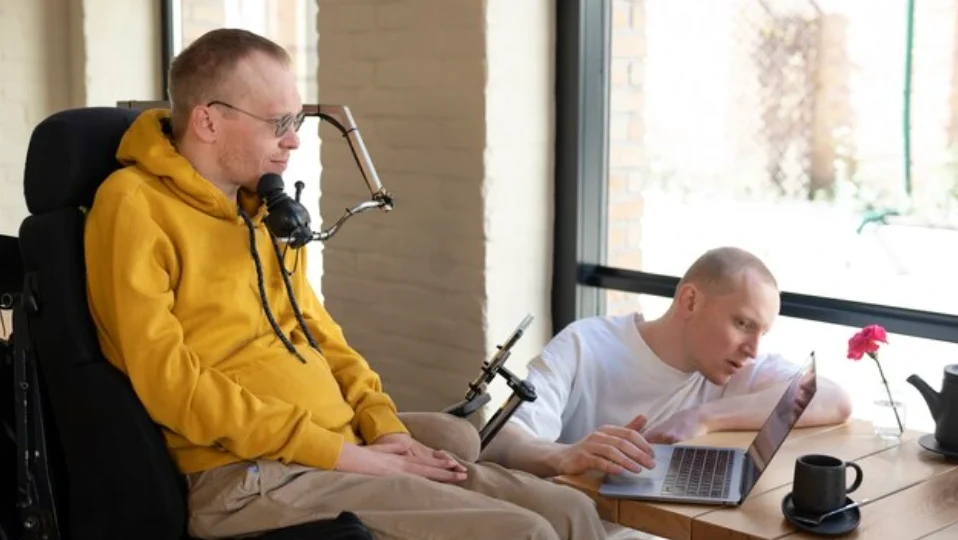Disability care courses in Melbourne aim to provide training and skills to people wishing to work with disabled people. These courses are intended to prepare the students for vocational success in the disability care sector and to integrate well in the workplace to provide quality support and care to all clients. With the growing demand for trained disability support workers around Australia, especially in Melbourne, these courses offer entry to a secure, ever-growing profession with plenty of opportunities.
This article discusses the different forms of courses and learning institutions in Melbourne, Australia, the different skills acquired, the career end, and the many benefits that come with being in this noble profession.
How Do These Disabilities Care Courses Work?
There is a need to professionalize the care sector to improve its quality, even if it is already well-established as a caring profession. More education will improve the experience of individuals who are seeking these services, as they will most probably receive qualified personnel with the necessary skills.
For example, the disability care profession has seen tremendous transformations over the past few years, especially after the introduction of the National Disability Insurance Scheme(NDIS). It is anticipated that the demand for Australians with disability care services will increase further as more families seek these support services.
The Difference You Make: A job in disability support allows you to directly impact people’s lives. Support workers assist their clients in achieving greater independence, improving their standard of living, and participating in their community.
Job Security: The industry has numerous vacancies across Melbourne and Australia, owing to the demand for qualified disability support workers.
Job Satisfaction: Providing care in disability support can be very gratifying since it helps individuals achieve their goals and live decent lives.
Courses on Disability Care in Melbourne
There are various types of disability care courses in Melbourne, varying from beginner to advanced. So, here’s a look at some of the more common course types and their particulars:
Certificate III in Individual Support (Disability)
Program Summary: Certificate III in Individual Support (Disability) is a basic healthcare qualification course designed to prepare candidates for employment in disability care. It is perfect for those who are just starting out or who want a beginner’s course in the field.
What is taught in this course? This program prepares students in many core areas, including personal hygiene assistance, interaction, and communication, appropriate methods to encourage client self-reliance, types of disabilities, and occupational health and safety policies.
- Duration: The course is programmed over six to twelve months, depending on the training provider and study mode.
- Practical Placement: Most students do work placements to obtain such experience, which is hopefully organized by the training provider.
Certificate IV in Disability
- Overview: The Certificate IV in Disability is a step-up certificate. It builds upon the knowledge gained in Certificate III and provides further skills in training clients with advanced and complicated needs.
- Course Content: Some of the topics are individualized learning programs, support advocacy, behavior enrichment, and social inclusion-promoting skills. It equips learners with the skills necessary to deal with more reasonable, complex functions in their subsequent engagements in the disability field.
- Duration: This qualification usually takes no less than one year to complete, with both part-time and full-time options available.
- Career Outcomes: As for the career outcomes, the graduates tend to progress into disability support workers, team leadership roles, and other specialist roles in the disability sector.
Diploma of Community Services (Disability)
- Overview: These types of diploma programs will be suited for those who wish to proceed to supervisory bumps or with case management skills in disability care careers. They cover a broader scope in the context of community services, including disability care.
- Course Content: The terms include client case management, coordination of care, complexity coordination, and community mobilization. It also looks into mental illness and other intense focus areas in care.
- Career Insights: Graduates with a diploma can work as case management assistants, community support workers, or coordinators of services for the disabled.
- Period: It takes approximately two years to finish this course, including practical placement activities.
Short Courses and Workshops
General Comments and Recommendations: For those who are not ready to enroll in full qualification courses, there are options to attend short courses and workshops that address skill deficits in areas such as manual handling, effective communication, and mental health first aid.
Advantages: Short courses can assist in upgrading skills already possessed, provide some professional development, and develop the knowledge to work in specific areas of disability care.
Bachelor of Disability and Developmental Education
General Information: For those interested in pursuing a career in disability care, there is an academic angle as well – one can attain a Bachelor’s degree and then aim for higher positions in advocacy, policies, and leadership roles in the disability sector.
Content of the Course: Bachelor’s duplicates include extensive studies in disability, developmental education, inclusive practice, and advanced care.
Key Skills Gained from Disability Care Courses
Disability care courses equip learners with various skills that are necessary in the provision of disability support. Among the skills gained are:
Personal Care and Assistance:
Students are instructed on how to engage in hands-on care, which includes assisting with activities such as personal grooming, feeding, helping with mobility, and such. Focus is given to the client’s dignity and comfort.
Communication and Interpersonal Skills:
Communication between clients, families, and professionals in the field is fundamental in this line of business. Those taking disability care courses are trained to actively listen, show empathy, and speak concisely and clearly.
Behavioral Support and Management:
Techniques that assist in managing challenging behaviors and respectful and safe support of clients with complex needs are taught. This forms part of positive behavior support training.
Individualized Care Planning:
Disability support involves understanding disabilities deeply, which comes with various complexities for each client. All practitioners are trained to develop and work towards implementing individualized plans that fit and guide every person to effective and person-centered support.
Advocacy and Empowerment:
There are classes that specifically deal with advocacy or support activism, and this is one of the key points that should be stressed throughout the whole course—the significance of encouraging people with disabilities to have and make choices, be independent, and be active participants in society, with their rights being promoted.
Safety and Risk Management: The clients’ and caregivers’ health and safety are paramount. Students are taught safety precautions, manual handling techniques, and risk control measures necessary for direct client interaction. Practical Placements: Gaining Real-World Experience Most disability courses involve practical placements where students can gain real-life experience. Community support, supported accommodation, or residential facilities are common places for fun and practical placements.
There are many reasons why practical placements are a core area of disability care courses; here are some: Hands-on Learning: Practical experience provides students with an opportunity to apply various skills that have been taught in the classroom to practice, such as personal care and engaging with clients, under the supervision of trained professionals in the field.
Confidence Building: Placements aid in fostering students’ confidence by exposing them students to real-life situations and teaching them how to cope with challenges in such situations. Networking Opportunities: Practical placements serve as a good avenue for students to interact with practitioners in the industrial field for job opportunities and references after graduation. Understanding Workplace Dynamics: During placements, students comprehend how disability care institutions function concerning the interaction among teams and client care practice.
Career Outcomes and Pathways Completing a course in disability care in Melbourne will provide graduates with quite rewarding opportunities. Here are some common roles graduates can pursue: Disability Support Worker. These caregivers help clients meet their basic needs, such as dressing, cooking, and transport, as they integrate them into society. Community Support Worker.
Their aim is to promote clients’ well-being by assisting them in performing social activities and improving their access to the community. Residential Care Worker. These workers provide support on a 24-hour basis and oversee the activities of persons with disabilities in group homes or residential care institutions. Case Manager. They are responsible for developing the client support plan, which is a key client to multiple support services in order to meet the needs of the individual clients. Team Leader or Supervisor.
With increased experience, many disability care workers are promoted to team leader or supervisor positions where they mentor the other support workers and manage care activities. Disability Service Coordinator. These professionals assist the clients with their community services, oversee the service schedule, and implement individual support plans.
Advantages of Working in Disability Care Working in disability care in Australia is beneficial in many ways, just as its domestic and international markets are ever-growing. Let’s highlight some of them below! Job Satisfaction: It is fulfilling to support clients in pursuing greater independence and assist them in achieving meaningful goals. Flexible Work Options: Most, if not all, of the types of jobs in disability care, have flexible hours and even part-time and casual jobs. This improves work-life balance.
Opportunities for Career Growth: as the training institutions form more health professionals to cater to the growing sector, the chances for upward career progression, further training, and other forms of specialization are plenty. Positive impact on society: With the increase of people with disabilities, the need for disability care professionals is in high demand to help promote society’s inclusion. Skill Development: It is ideal that a career in disability care helps polish core soft skills such as communication, empathy, problem-solving, and teamwork, which are needed in any other work or social context.
Choosing the Right Training Provider in Melbourne, getting involved with, or partnering with a training provider who can successfully deliver all education needs and deliverables, is important. Given this fact, the following points should be thoroughly considered when selecting a course provider: Accreditation and Recognition: It is important to check the provider’s accreditation and ensure the course is nationally recognized for meeting compliance standards.
Placement Opportunities: In legal education, good training providers arrange effective practical placements that assist students in gaining the necessary experience to work successfully in the future.
Student support services: Choose providers that offer career support services, such as resume writing workshops, job placement services, and industry contacts.
Time commitments: Look if the provider offers different ways to study, such as online courses and part-time ones, to fit in with your diary and other commitments.
Conclusion
Disability care courses in Melbourne provide the proper skills, knowledge, and hands-on experience that are important for succeeding in a career in the disability care industry. The programs ensure that students are trained to give appropriate care to people with various forms of disability and are ready to take up many interesting jobs after graduation. Increasingly, more people need disability support, and if one completes a course in disability care, one is guaranteed a good job that provides satisfaction and is valuable to people in society.
Read Our More Blogs On Health.

